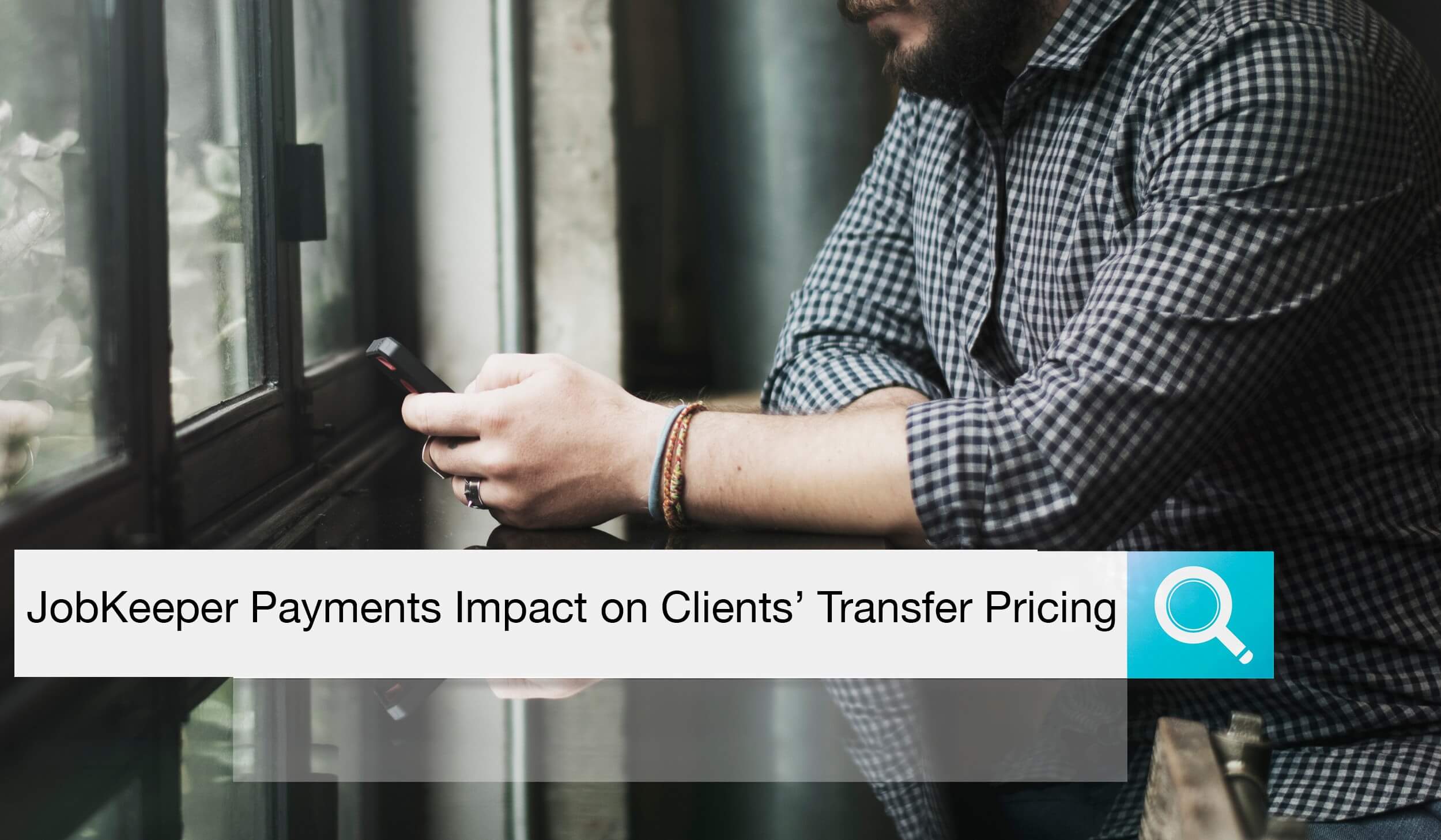JobKeeper Payments - Impact on Your Clients' Transfer Pricing
Knowledge • JobKeeper Payments - Impact on Your Clients' Transfer Pricing
Knowledge • JobKeeper Payments - Impact on Your Clients' Transfer Pricing

Let’s use a common example.
An Australian subsidiary of a multinational group provides information technology services to its offshore related party. It charges the full cost of providing the services plus a profit mark-up of 10%. The profit mark-up is based on a comparability analysis and is assumed to be arm’s length.
The Australian subsidiary incurs $60 of salary cost and other operating costs of $40, totalling $100. The Australian subsidiary is eligible for and receives the JobKeeper payment amounting to $60, which subsidises the $60 of salary cost.
The JobKeeper payment is presented in the Australian subsidiary’s profit and loss statement as a reduction of the related salary expenses.
Going back to the ATO expect that Australian entities will retain the benefit of the JobKeeper payment they receive. Therefore, the cost base of the service is not reduced by the JobKeeper payment for the purpose of calculating the transfer price.
The transfer price is calculated as follows:
The profit and loss statement is calculated as follows:
It is important to note that the JobKeeper payments should NOT result in a reduction of the price of the service provided to the
offshore related party. No reduction should be made to the cost of the service. The cost base in the above example remains as $100, which
continues to attract a mark-up of $10.
It is not correct if the cost base of the service is reduced by the JobKeeper payments, resulting in a reduction of the price of the
service. In that situation the Australian subsidiary would not retain the benefits of the government assistance, instead subsidising the
price of its service for the benefit of its offshore related party.
Going back to the principles of transfer pricing, independent parties acting in a commercially rational manner would not be expected
to share the benefit of the government assistance. The Australian entity should retain the benefit of the government assistance it
receives.
A significant number of businesses with varying transfer pricing arrangements are potentially affected by JobKeeper so it will come down to
the facts and circumstances of your client’s individual situation.
The ATO will review arrangements where the JobKeeper payment:
How can we help?
Transfer Pricing Solutions Asia is a boutique transfer pricing firm that provides practical, proactive and cost-effective advisory to your clients.
We can assist your clients with the preparation of transfer pricing documentation locally and regionally, Master File and Local File,
local, regional and global benchmarking.
Get in touch
T: +61 (3) 5911 7001
E: reception@transferpricingsolutions.com.au
Meet your experts

Shannon Smit
Transfer Pricing Solutions founder Shannon Smit spent 11 years working with a Big 4 in Melbourne, Amsterdam, Prague and 5 years in New York, before returning to Melbourne in 2005. During 2005-2006 Shannon noticed the increased recruitment of in-house transfer pricing specialists to American tax teams as transfer pricing controversy increased around the world. Shannon started to identify an opportunity as many Australian companies were also facing these increased transfer needs, but did not have a need or funding for a permanent transfer pricing team member, and other options available to them to fulfil this role were quite costly. And so in early 2007 Shannon left the Big 4 to start Transfer Pricing Solutions. Shannon has specialized in transfer pricing since 1998, working in Amsterdam, New York and Melbourne Big 4 offices. Shannon is a Chartered Accountant, Registered Tax Agent and holds her Masters in International Tax Law and has recently been appointed to the Australian Governments Board of Taxation Working Group as an expert panel member for the Review of Tax Impediments Facing Small Business.

Hong Chuan Tan
Hong Chuan Tan has five years of experience in transfer pricing and GST. Before joining Transfer Pricing Solutions, Hong Chuan was a
Transfer Pricing Manager in BDO Malaysia. He played a key role in pioneering and developing the transfer pricing practice in Malaysia.He
specialises in the area of transfer pricing where he manages a portfolio of clients comprising companies from a broad range of industries
such as mining; electrical and electronics; plastic products; construction and property development; hotels; real estate; oil and gas
amongst others. He has prepared transfer pricing documentation (Master File and Local File) for the Asia Pacific region, in particular
Australia, Malaysia, Singapore and the Philippines.
He possesses experience in working with leading brands with the primary focus to exceed the expectations on clients’ service delivery while
ensuring optimum brand impact. He is able to provide effective and resourceful information on the transfer pricing related problems, provide
recommendations for the client’s business and process improvements. Hong is fluent in Mandarin and Cantonese.